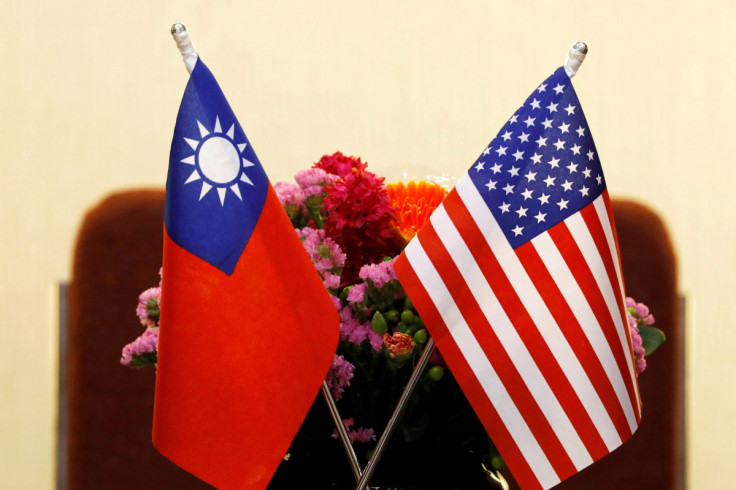US-Taiwan Nuclear Umbrella A Signal To China That Invasion Could 'Escalate To Nuclear Level'

KEY POINTS
- Taiwan's possibility of joining the U.S. nuclear umbrella could deter Chinese threats
- Taiwan could gather support from nuclear-powered countries despite its policy banning nuclear use
- Taiwan's foreign ministry denied the island intends to join the U.S. nuclear umbrella
Speculations over the possibility of Taiwan joining the U.S. nuclear umbrella in the Indo-Pacific region have sounded alarm that the cross-strait tensions with China could lead to a nuclear conflict.
On May 22, Taiwanese Foreign Minister Joseph Wu confirmed the island conducted talks on whether the U.S. would include Taiwan under its nuclear umbrella. While the minister did not reveal further details and denied wanting to join the nuclear umbrella, analysts believe it would create a strong deterrent for Taiwan against Chinese attacks.
In an interview with Taipei-based CommonWealth Magazine last December, John Mearsheimer, an international affairs professor at the University of Chicago, said Taiwan joining the U.S.'s nuclear protection would send a clear message to Beijing: "If they are to attack Taiwan, it will escalate to the nuclear level."
Mearsheimer added that it would "create a powerful, conventional deterrent in Taiwan."
Su Tzu-yun, a senior analyst at the Taiwan-based think tank Institute for National Defense and Security Research, noted that while Taiwan "has maintained a policy of not developing nuclear or other weapons of mass destruction," the island could gather support from other countries if it faced nuclear threats from China.
"If Taiwan is included, it would provide Taiwan an extended form of deterrence that would greatly enhance its security," Su said, South China Morning Post reported.
If Taiwan fails to join the U.S. nuclear umbrella, American forces could deploy its nuclear submarines near the Taiwan Strait to act as a "kind of deterrence," Wang Kung-Yi, the director of the Taipei-based think tank Taiwan International Strategic Study Society, said.
Wang noted that Taiwan's Western allies were increasingly concerned about Beijing's sustained military pressure campaign against the island.
Chang Yen-ting, a retired Taiwanese lieutenant general, also agreed that the plan to include Taiwan under the nuclear umbrella could derail China's expansion efforts. However, he doesn't believe Beijing would use nuclear weapons to attack the island.
"It is unlikely for Beijing to use nuclear weapons to attack Taiwan, given the radiation spillover problem and the proximity of Taiwan to the Chinese mainland," Chang told SCMP.
Foreign Minister Wu on Friday also denied the island wanted to be included under the U.S.'s nuclear umbrella, hitting at media outlets for "misinterpreting the original intention and deliberately creating the impression of conflicts among ministerial heads in an attempt to sow discord from within the government."
The Taiwanese Foreign Ministry added the misinterpretation of Wu's statement could damage Taiwan-U.S. relations and urged the public to carefully discern news about the island's security.
According to the U.S. Air Force, the nuclear umbrella, formally known as "extended deterrence," aims to "respond across the spectrum of potential nuclear and non-nuclear scenarios in defense of allies and partners."
So far, Japan, South Korea, Australia, New Zealand and the countries belonging to the North Atlantic Treaty Organization (NATO) are under the U.S.'s extended deterrence policy.

© Copyright IBTimes 2024. All rights reserved.






















